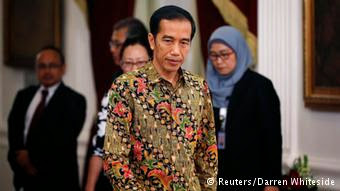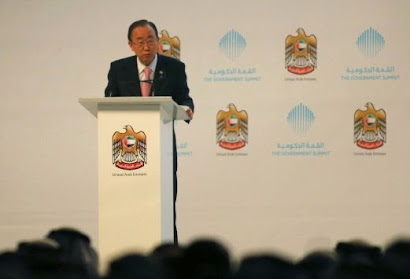Veeramalla Anjaiah, The Jakarta Post, Jakarta | Wed, 11/19/2008 11:16 AM
The Netherlands and Indonesia have a more than 300-year-old love-hate relationship. But it took a new turn in 2005 when the Dutch government finally expressed regret over its "police actions" in the late 1940s and recognized Indonesia's independence day as Aug. 17, 1945.
"Our decision to accept Aug. 17, 1945, as Indonesia's independence day in 2005 has changed the direction of our relationship with Indonesia," Dutch Ambassador to Indonesia Nikolaos van Dam told The Jakarta Post in an interview recently at his office in Jakarta.
Since then, both countries have enjoyed a big boom in their relations.
Before 2005, the Dutch government recognized Indonesia's independence date as Dec. 27, 1949 -- the day it formally transferred sovereignty to Indonesia. In 1947, the Netherlands deployed its military in Indonesia to suppress the young republic, an action that led to the deaths of thousands of people from both sides.
Describing the growing ties between the two countries, Van Dam said the mutual trust, friendship and willingness to develop stronger relations had resulted in the unprecedented boom in bilateral relations.
"More than half of our Cabinet members, including our Prime Minister in 2006, visited Indonesia during the last three years. This shows how important Indonesia is for us in this region," Van Dam, one of the busiest ambassadors in town, said.
The latest visitor was Dutch Minister of Economic Affairs Maria van der Hoeven, who came to Indonesia last week to inaugurate the Holland Weeks cultural festival.
With more than 150 staff members, the Dutch Embassy in Jakarta is the biggest Dutch Embassy in the world.
Van Dam said high-level visits were not a one-sided affair.
"From the Indonesian side we also have numerous high-level visits to the Netherlands. Now we are waiting for the visit of the Indonesian President (Susilo Bambang Yudhoyono)," he said.
Trade between the two countries has grown at a tremendous pace over the last five years (see table).
"Our bilateral trade last year surpassed the US$3 billion mark. Indonesia enjoys a significant and increasing trade surplus with the Netherlands," Van Dam, who speaks fluent Indonesian, said.
In 2007, bilateral trade surged to $3.25 billion -- a huge jump from $1.77 billion in 2003. In the first seven months of 2008, bilateral trade was valued at $2.54 billion, 52.41 percent higher than the $1.66 billion recorded over the same period in 2007.
But the growth in trade favors Indonesia, thanks to its strong exports to the Netherlands. For instance, Indonesia exported $2.75 billion worth of goods to the Netherlands and imports $503.99 million goods from there in 2007.
There is another dimension to the trade between Indonesian and the Netherlands.
"The Netherlands is a gateway to Europe for Indonesian products. Most of Indonesia's trade to Europe has been through the Dutch port of Rotterdam. Simultaneously, Indonesia is also a gateway to Southeast Asia for our products," Van Dam said.
In terms of foreign direct investment (FDI) planning approvals, the Netherlands ranked 8th in 2007 with a total investment of $645 million in 57 projects.
Thanks to historical links and enormous economic potential, Dutch companies have always been attracted to Indonesia.
"Shell, one of world's leading energy companies, actually originated in Sumatra in 1890. Companies like Unilever, which has huge plants in Indonesia, Philips and other Dutch companies are well-known here," Van Dam said.
Besides trade and investment, Van Dam went on, Indonesia and the Netherlands enjoyed good cooperation in areas such as agriculture, energy, technology, defense, shipbuilding and tourism.
Last year, the Netherlands provided $105 million in development assistance to Indonesia for programs covering good governance, education, water management, drinking water, sanitation, improving the investment climate, community development, and rehabilitation and reconstruction of tsunami-affected areas.
"The majority of the Netherlands' funds are allocated to programs driven by the Indonesian government and channeled through multilateral agencies (the World Bank, the Asian Development Bank and the UN) that are responsible for the supervision, monitoring and coordination," Van Dam said.
Of these areas, the tourism sector is very important in Dutch-Indonesian relations.
"Almost a third of Dutch citizens have personal links with Indonesia, and many Indonesians also have close links with the Netherlands," Van Dam said.
Commenting on the European Commission's ban on Indonesian airlines from EU airspace, Van Dam said the Netherlands was already helping Indonesia improve its air safety.
"(The ban) was unfortunate. But air safety is everybody's concern. We are currently helping Indonesia improve the safety of air transportation," Van Dam said.
Though no Indonesian airlines now fly to Europe, the ban does affect the work of many European diplomats.
"The ban affects relations between the EU and Indonesia. But I use local airlines for my official duties, I don't have any problems with Indonesian airlines," Van Dam said.
















